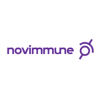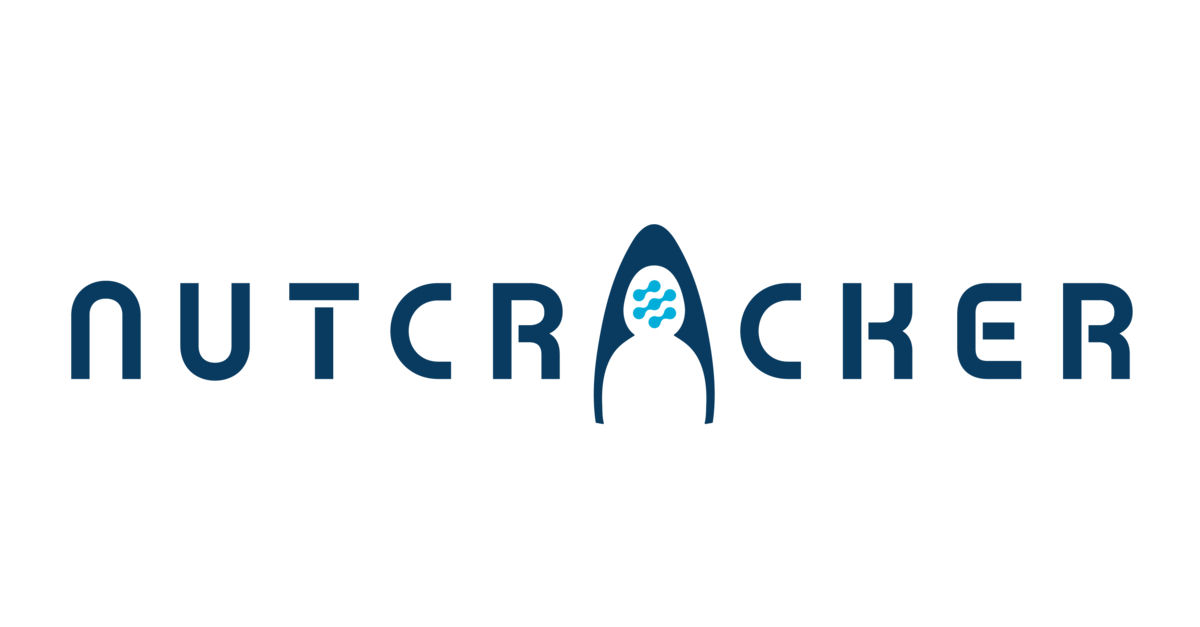预约演示
更新于:2025-05-07
CD47 x CD19
更新于:2025-05-07
关联
3
项与 CD47 x CD19 相关的药物作用机制 CD19调节剂 [+1] |
原研机构 |
最高研发阶段临床1期 |
首次获批国家/地区- |
首次获批日期1800-01-20 |
作用机制 CD19抑制剂 [+1] |
在研机构- |
原研机构- |
在研适应症- |
非在研适应症- |
最高研发阶段临床阶段不明 |
首次获批国家/地区- |
首次获批日期1800-01-20 |
作用机制 CD19抑制剂 [+2] |
在研适应症 |
非在研适应症- |
最高研发阶段临床前 |
首次获批国家/地区- |
首次获批日期1800-01-20 |
2
项与 CD47 x CD19 相关的临床试验NCT04806035
A Phase 1b Multi-cohort Study of TG-1801 Alone or in Combination With Ublituximab in Subjects With B-Cell Lymphoma or Chronic Lymphocytic Leukemia
The primary objective of this study is to determine the recommended phase 2 dose (RP2D) and characterize the safety profile of TG-1801. As per protocol v3.0, ublituximab will be discontinued.
开始日期2021-04-28 |
申办/合作机构 |
NCT03804996
A Phase 1 First-in-Human Study of Bispecific Antibody TG-1801 in Subjects With B-Cell Lymphoma
Phase 1 first in human Study to Assess the Bispecific Antibody TG-1801 in Subjects with B-Cell Lymphoma
开始日期2019-03-05 |
申办/合作机构 |
100 项与 CD47 x CD19 相关的临床结果
登录后查看更多信息
100 项与 CD47 x CD19 相关的转化医学
登录后查看更多信息
0 项与 CD47 x CD19 相关的专利(医药)
登录后查看更多信息
27
项与 CD47 x CD19 相关的文献(医药)2024-09-01·Expert Opinion on Therapeutic Targets
Looking ahead to targeting macrophages by CAR T- or NK-cells in blood cancers
Review
作者: Tigu, Adrian-Bogdan ; Daniela Tănase, Alina ; Einsele, Hermann ; Tomai, Radu ; Milea, Paul Alexandru ; Kegyes, David ; Nistor, Madalina ; Cenariu, Diana ; Mazga, Andreea-Isabella ; Tomuleasa, Ciprian ; Buruiana, Sanda
2024-04-01·Cancer Science
An engineered Accum-E7 protein-based vaccine with dual anti-cervical cancer activity.
Article
作者: Beaudoin, Simon ; Farah, Roudy ; Gonçalves, Marina ; Talbot, Sebastien ; Bikorimana, Jean-Pierre ; Plouffe, Sebastien ; Saad, Wael ; Abusarah, Jamilah ; Bikorimana, Jean‐Pierre ; Rafei, Moutih ; Stanga, Daniela
2024-02-01·HemaSphere
Enhanced potency of immunotherapy against B‐cell precursor acute lymphoblastic leukemia by combination of an Fc‐engineered CD19 antibody and CD47 blockade
Article
作者: Wichmann, Christian ; Lenk, Lennart ; Bruns, Heiko ; Münnich, Ira A. ; Vogiatzi, Fotini ; Mougiakakos, Dimitrios ; Müller, Kristina ; Bhat, Hilal ; Humpe, Andreas ; Kellner, Christian ; Peipp, Matthias ; Valerius, Thomas ; Felix, Elisa ; Windisch, Roland ; Zeller, Tobias ; Schewe, Denis M.
245
项与 CD47 x CD19 相关的新闻(医药)2025-05-03
·小药说药
-01-引言在过去十年中,以免疫检查点抑制剂和细胞疗法为形式的癌症免疫治疗改善了许多患者的治疗和预后。尽管如此,大多数癌症仍然对目前批准的癌症免疫疗法具有耐药性。需要新的方法和合理的组合来克服这些阻力。最新的研究表明,肿瘤微环境中含唾液酸聚糖的唾液酸与肿瘤浸润免疫细胞上唾液酸结合免疫球蛋白样凝集素(Siglec)受体之间的相互作用可能代表一个新的免疫检查点和癌症免疫治疗的潜在新靶点。-02-一、Siglec受体及信号通路Siglecs是一类与含唾液酸的聚糖结合的受体家族。大多数Siglec受体是抑制性的,目前发现 15 种人源和 9 种鼠源的Siglec 分子。Siglec受体可进一步分为序列保守的受体和与CD33相关的快速进化受体。Siglec-1、Siglec-2(CD22)、Siglec-4和Siglec-15属于保守家族;Siglec-3(CD33)、Siglec-5、Siglec-6、Sigleg-7、Siglec8、Siglec-9、Sigle-c-11、Siglec-XII、Siglec-14和Siglec-16属于快速演化的CD33相关Siglecs受体。根据细胞内信号结构域的不同,Siglec受体也可分为抑制型、激活型和非信号型。Siglec-11、Siglec-14和Siglec-15属于激活型Siglec受体,而Siglec-1和Siglec-4没有直接的免疫调节细胞内结构域。所有其他人类Siglec受体在本质上都是抑制性的。Siglec 家族属于一次穿膜的Ⅰ型膜蛋白, 在结构上具有非常典型和保守的结构特征, 其穿膜区由 2 ~17 个胞外 Ig 结构域组成,N 端由一个结合唾液酸的V-set Ig 结构域和一定数目的 C2-set Ig 结构域组成。抑制性Siglec受体细胞内含有免疫受体酪氨酸抑制基序(ITIM)和免疫受体开关基序(ITSM)的结构域,可以通过SHP1和SHP2磷酸酶的参与调节细胞内信号。因此,抑制性Siglecs可以与PD-1/PD-L1类似的作用方式抑制免疫细胞激活。激活型Siglec受体具有带正电荷氨基酸的跨膜结构域,当CRD与唾液酸聚糖配体结合时,该跨膜结构区介导DAP12的招募,DAP12包含免疫受体酪氨酸基激活基序(ITAM),并可传递激活信号。-03- 二、癌症相关Siglec配体的表达许多研究报告了癌症和肿瘤微环境中唾液酸聚糖的表达变化,肿瘤细胞通常是高唾液酸化的,产生免疫细胞上抑制性Siglec受体的配体。例如,由于唾液酸转移酶ST3GAL1和ST3GAL4的过表达,胰腺导管腺癌(PDAC)肿瘤细胞显示出唾液酸化增加。PDAC细胞的唾液酸化被髓系细胞上的Siglec-7和Siglec-9识别,并使单核细胞向促瘤巨噬细胞极化。同样,Siglec-9配体的上调已在人类结直肠癌、前列腺癌、乳腺癌和非小细胞肺癌中得到证实。通过全基因组筛查,已确定唾液酸化CD43是Siglec-7的高度特异性配体,抑制NK细胞介导的K562白血病细胞杀伤。LGALS3BP已被证明是几种Siglecs(包括Siglec-9)的分泌型癌相关配体,可抑制中性粒细胞活化。CD24在许多癌症中过表达,并通过与Siglec-10在肿瘤相关巨噬细胞(TAM)上的相互作用,成为某些卵巢癌和乳腺癌中免疫逃避的主要机制。此外,可溶性CD52同样与T细胞上的Siglec-10结合,据报道在自身免疫性疾病中抑制T细胞。-04-三、Siglec受体对癌症免疫细胞的影响Siglec受体广泛表达于免疫系统的不同细胞上。已证明,不同免疫细胞上的唾液酸聚糖配体和Siglec受体之间的功能相关相互作用有助于在癌症背景下建立免疫抑制微环境。固有免疫细胞,特别是巨噬细胞,高表达几种不同的Siglec受体,包括Siglec-3、Siglec-5、Siglec-7、Siglec9、Siglec-10、Siglec/14和Siglec-15。最近证明,唾液酸聚糖对胰腺癌细胞的Siglec-7和Siglec-9结合可诱导促肿瘤巨噬细胞表型。。此外,已经表明,癌细胞上的唾液酸化CD24与TAM上的Siglec-10相互作用可以抑制吞噬作用。巨噬细胞上的Siglec-15也被证明可以抑制T细胞介导的抗肿瘤免疫。树突状细胞是抗肿瘤免疫反应的重要介质,与免疫治疗的成功密切相关。最近的研究进一步表明Siglec受体在经典树突状细胞(cDC)上的作用。已证明DC上的小鼠Siglec-G可以调节抗原处理;此外,小鼠体内的Siglec-E被证明参与了抗原摄取和向CD4+T细胞的递呈。在小鼠模型系统中,抗原的唾液酸化可通过Siglec-E诱导耐受性调节性T细胞。人单核细胞衍生树突状细胞上的唾液酸聚糖通过Siglec-7和Siglec-9抑制免疫细胞激活。唾液酸聚糖还可诱导DC和CD8+T细胞之间的高亲和力相互作用。NK细胞是重要的先天性淋巴细胞。几组研究表明,NK细胞上的Siglec-7和Siglec-9可与癌症相关唾液酸聚糖作用,参与抑制抗肿瘤免疫激活。将合成唾液酸聚糖插入肿瘤细胞的细胞膜能够剂量依赖性地抑制NK细胞介导的杀伤和脱颗粒。最近的工作进一步证明Siglec-7与多发性骨髓瘤细胞上的唾液酸化PSGL-1相互作用,能够抑制NK细胞介导的骨髓瘤细胞杀伤。此外,在肾癌细胞中,神经节苷脂Siglec-7配体的过表达抑制NK细胞活化;唾液酸化MUC16结合人Siglec-9并抑制卵巢癌中的NK细胞。除了影响髓系细胞和其他先天免疫细胞外,唾液酸聚糖-Siglec相互作用也影响癌症的适应性免疫系统。研究发现,Siglec-9在癌症患者血液和肿瘤浸润性T细胞中上调,其在肿瘤特异性耗竭的PD-1+T细胞上表达。肿瘤细胞上Siglec-9配体的减少显著诱导T细胞介导的效应器功能和肿瘤细胞杀伤。在T细胞急性激活后,Siglec-5和Siglec-10也被发现上调,并可能影响抗肿瘤免疫。总之,唾液酸聚糖与Siglec受体的相互作用已被证明通过诱导肿瘤相关巨噬细胞的促癌表型、抑制NK细胞和中性粒细胞活化、减少DC成熟和抗原提呈以及抑制T细胞反应,有助于免疫抑制肿瘤微环境。-05-四、针对唾液酸聚糖-Siglec的药物开发近几年以来,作为肿瘤抗原的Siglec受体一直是治疗癌症的重要靶点。Siglec-2(CD22)在许多B细胞恶性肿瘤中表达,抗体偶联药物(ADCs)已成功用于靶向肿瘤细胞,如inotuzumab ozogamicin治疗复发性急性淋巴细胞白血病。靶向Siglec-2和CD19的CAR-T细胞也被开发用来治疗复发性弥漫性大细胞B细胞淋巴瘤或急性淋巴细胞白血病患者。此外,靶向Siglec-3的ADC也在开发和测试当中。除了作为一种直接的肿瘤相关性抗原,Siglec受体及其唾液酸聚糖配体也可以作为靶向激活免疫细胞对抗肿瘤。Siglec受体可以被高亲和力抗体阻断,类似于PD-1/PD-L1和CTLA-4的免疫检查点抑制剂。阻断性抗体NC318以Siglec-15为靶点,目前正在进行一项对晚期非小细胞肺癌患者联合使用pembrolizumab的临床研究(NCT04699123)。Siglec-7和Siglec-9是提高NK细胞抗肿瘤活性的潜在靶点,一项使用Siglec-7和-9阻断性抗体的临床前研究证明了在小鼠模型中的抗肿瘤功效,阻断抑制性Siglec受体可支持免疫抑制微环境中TAM的复极,增加抗肿瘤巨噬细胞的吞噬作用。此外,肿瘤细胞上CD24与肿瘤相关巨噬细胞上Siglec-10之间的相互作用被认为是增强巨噬细胞吞噬作用的新治疗靶点。另一种方法是使用针对特定糖类的阻断性抗体。最近的一项研究表明,抗神经节苷脂GD2的抗体可以通过抑制巨噬细胞上GD2与Siglec-7的结合来提高抗肿瘤免疫,从而通过进一步增加吞噬作用来增强CD47阻断的效果。此外,降低肿瘤细胞和肿瘤微环境中的唾液聚糖密度是一种替代策略。可以开发新的唾液酸生物合成抑制剂,以改善癌症免疫治疗。在小鼠模型中,使用2-脱氧-D-葡萄糖抑制肿瘤细胞的N-糖基化可增加CAR-T细胞介导的杀伤作用和疗效。使用酶降低肿瘤中唾液酸聚糖的密度也被证明可以增强抗肿瘤免疫治疗,与抗HER2抗体trastuzumab偶联的细菌唾液酸酶,目前正在首次人体临床试验。-06-结语癌症免疫治疗的改进需要开发新的方法。Siglec受体及其与唾液酸聚糖配体的相互作用是改善癌症免疫治疗的一个潜在的新型免疫检查点。在过去的几年里,已经进行了一些临床前和临床研究,支持了针对Siglec受体的药物开发。以唾液酸聚糖-Siglec轴为靶点的癌症免疫治疗显示出良好的潜力。参考资料:1.Siglec receptors as new immune checkpoints in cancer. Mol Aspects Med.2022 Aug 7;101112.公众号内回复“ADC”或扫描下方图片中的二维码免费下载《抗体偶联药物:从基础到临床》的PDF格式电子书!公众号已建立“小药说药专业交流群”微信行业交流群以及读者交流群,扫描下方小编二维码加入,入行业群请主动告知姓名、工作单位和职务。
免疫疗法细胞疗法临床研究
2025-04-18
·抗体圈
摘要:双特异性抗体(bsAbs)作为一种新型抗癌疗法,能同时靶向两种不同抗原,通过多种独特机制发挥作用,为癌症治疗带来新希望 。目前,部分 bsAbs 已获批用于血液系统恶性肿瘤和部分实体瘤的治疗,但在临床应用中仍面临毒性管理和耐药等挑战 。本文将详细介绍 bsAbs 的设计原理、作用机制、临床应用现状、局限性以及未来发展方向,旨在让读者全面了解这一领域的研究进展和应用前景 。一、双特异性抗体:癌症治疗的新希望癌症严重威胁人类健康,传统治疗手段存在诸多局限 。双特异性抗体(bsAbs)作为一种新型治疗药物,能同时瞄准两个不同的抗原或抗原表位,具有独特的结构和多样的设计可能性,这使其作用机制丰富多样,比如引导免疫细胞攻击肿瘤细胞,或阻断肿瘤相关的信号通路 。目前,已有 11 种 bsAbs 获得监管批准用于癌症治疗,其中 7 种用于血液系统恶性肿瘤,4 种用于部分实体瘤,还有大量相关临床试验正在进行 。不过,在临床使用过程中,bsAbs 也面临着细胞因子释放综合征(CRS)、免疫效应细胞相关神经毒性综合征(ICANS)等不良反应的挑战 。接下来,我们深入了解一下 bsAbs 的具体情况 。二、双特异性抗体的设计奥秘结构优化与功能调节:bsAbs 的设计灵感来源于内源性二价抗体,目前主要分为基于 Fc 区域和基于片段的两大类(原文 Figure 1 和 Figure 2,帮助读者直观理解内源性抗体、单克隆抗体和双特异性抗体的结构差异,以及 bsAbs 的不同设计类型) 。Fc 区域在抗体中负责介导效应功能,但也可能引发一些不良影响 。因此,人们通过选择不同的 IgG 亚类或进行氨基酸替换等方式来调整 Fc 区域的功能,以平衡其免疫激活和不良作用 。比如,选择 IgG2 或 IgG4 亚类可以降低与 FcγR 的结合,减少非特异性免疫细胞激活;而去除或减少 Fc N - 聚糖中的核心岩藻糖,则能增强与 FcγRIIIa 的结合,提升 ADCC 活性 。药代动力学与半衰期优化:bsAbs 的药代动力学特性和半衰期对其疗效有着重要影响 。基于 Fc 的 bsAbs 可以通过与新生儿 Fc 受体(FcRn)结合,实现抗体的循环利用,延长半衰期 。而基于片段的 bsAbs 虽然具有较高的组织渗透性,但半衰期较短 。为了解决这一问题,人们尝试了多种方法,如对基于片段的 bsAbs 进行修饰,使其与其他分子融合,像与人类血清白蛋白融合,或者为经典的 BiTEs 添加 Fc 区域,从而延长其在体内的停留时间。抗原结合价态的选择:bsAbs 根据抗原结合位点的数量可分为对称和不对称两种类型 。对称 bsAbs 通常具有四价结构,能平衡地靶向两个抗原;不对称 bsAbs 则提供了更灵活的靶向选择,如 1 + 1 或 1 + 2 等不同的结合形式。选择合适的抗原结合价态,有助于提高 bsAbs 对肿瘤细胞的靶向性和治疗效果 。降低 “脱靶毒性”:“on - target off - tumor” 毒性是 bsAbs 面临的一个重要问题,即抗体与肿瘤细胞和正常组织上的抗原都结合,从而产生不良影响 。为了改善这一情况,研究人员通过优化不同结合位点的特异性和亲和力,使 bsAbs 更倾向于与肿瘤细胞结合 。例如,ABL503 通过同时靶向 PD - 1 和 4 - 1BB,降低了肝脏毒性;TG - 1801 对 CD19 和 CD47 的不同亲和力设计,减少了对正常细胞的影响。此外,将 bsAbs 设计成在肿瘤微环境中激活的前药,也是减少对健康组织影响的一种策略 。三、双特异性抗体的作用机制大揭秘免疫细胞激活:双特异性 T 细胞衔接器(TCEs)能够同时结合 T 细胞和肿瘤细胞,激活 T 细胞,使其释放穿孔素和颗粒酶,从而杀死肿瘤细胞 。此外,TCEs 还能引发 T 细胞的增殖和迁移,重塑肿瘤微环境(TME)(原文 Figure 3,展示双特异性 T 细胞衔接器等 bsAbs 的作用机制示意图,帮助读者理解 TCEs 如何发挥作用)。除了 T 细胞,自然杀伤(NK)细胞也能被双特异性杀伤细胞衔接器(BiKEs)引导至肿瘤部位,发挥抗肿瘤作用 。例如,AFM13(CD30xCD16A)在治疗 CD30 + 淋巴瘤的临床试验中展现出显著的抗肿瘤活性 。免疫检查点调节:免疫检查点调节疗法是癌症治疗的重要突破,但也存在一些问题 。双特异性抗体可以同时阻断两个免疫检查点受体,如 PD - 1 和 CTLA - 4,相比于单克隆抗体组合,它能更精准地靶向肿瘤浸润淋巴细胞(TILs),增强抗肿瘤免疫反应,同时减少 “脱靶” 毒性 。例如,volrustomig 和 cadonilimab 都能优先靶向共表达 PD - 1 和 CTLA - 4 的 TILs 。此外,bsAbs 还可以结合共刺激受体,进一步激活 T 细胞,但如何控制 T 细胞的激活程度,使其在安全有效的范围内,仍是一个挑战 。信号通路阻断:bsAbs 可以通过阻断肿瘤细胞的关键信号通路来抑制肿瘤生长 。它们可以同时靶向两个不同的抗原或同一抗原的不同区域,阻止受体 - 配体相互作用,促进受体内化和降解,从而抑制下游信号传导 。比如,amivantamab 通过阻断 EGFR 和 cMET 信号通路,有效治疗 EGFR 突变的非小细胞肺癌;zanidatamab 则通过同时靶向 HER2 的不同结构域,抑制 HER2 信号传导,展现出强大的抗肿瘤活性 。四、双特异性抗体的临床应用成果血液系统恶性肿瘤:在血液系统恶性肿瘤的治疗中,bsAbs 取得了显著的成效 。以急性淋巴细胞白血病(ALL)为例,blinatumomab 在治疗复发 / 难治性 B 细胞 ALL 方面表现出色,不仅在成人和儿童患者中都有较高的完全缓解率,还获得了 FDA 的多项批准,用于不同阶段的 ALL 治疗 。在 B 细胞非霍奇金淋巴瘤(B - NHL)的治疗中,glofitamab、epcoritamab 和 mosunetuzumab 等针对 CD20 的 TCEs,在复发 / 难治性患者中展现出良好的疗效,显著提高了完全缓解率 。对于多发性骨髓瘤(MM),teclistamab、elranatamab 和 talquetamab 等靶向特定抗原的 bsAbs,为复发 / 难治性患者带来了新的希望,延长了患者的无进展生存期和总生存期(原文中相关表格,如 Table 1,展示这些 bsAbs 在血液系统恶性肿瘤治疗中的关键数据,包括批准时间、适应症、临床试验结果等,让读者更直观地了解其疗效) 。实体肿瘤:尽管在实体肿瘤的治疗中,bsAbs 面临着更多挑战,但也取得了一些突破 。tebentafusp 是一种针对葡萄膜黑色素瘤的 ImmTAC 分子,它的出现为这种对传统免疫治疗耐药的肿瘤提供了新的治疗选择,显著延长了患者的总生存期 。amivantamab 获批用于治疗 EGFRex20ins 非小细胞肺癌,tarlatamab 则被批准用于治疗复发 / 难治性广泛期小细胞肺癌,它们在临床试验中都展现出了一定的疗效 。此外,还有许多针对不同实体肿瘤抗原的 bsAbs 正在研发中,如针对 HER2、CLDN18.2 等抗原的药物,为未来实体肿瘤的治疗带来了新的希望 。五、双特异性抗体面临的挑战与应对策略毒性反应:细胞因子释放综合征(CRS)是 bsAbs 治疗中常见的不良反应,它是由于免疫细胞过度激活,导致促炎细胞因子大量释放引起的 。症状轻重不一,严重时可能危及生命 。目前,临床上主要通过密切监测、支持治疗和使用抗炎药物(如 tocilizumab)来管理 CRS 。免疫效应细胞相关神经毒性综合征(ICANS)也是一种严重的神经系统毒性,其发病机制与免疫细胞激活和细胞因子释放有关,症状包括震颤、失语等,严重时可进展为谵妄、癫痫甚至昏迷。ICANS 的管理主要依靠密切监测和支持治疗,皮质类固醇激素是常用的治疗药物 。输液相关反应(IRRs)通常在输液过程中或输液后短时间内出现,症状多样,可轻可重 。通过调整输液速度、预先使用药物(如抗组胺药、类固醇等)等方法可以减少 IRRs 的发生 。此外,使用 bsAbs 治疗还可能增加机会性感染的风险,尤其是在血液系统恶性肿瘤患者中,这与患者自身免疫状态、bsAbs 的 “脱靶” 效应以及联合治疗等因素有关,需要加强监测和预防。耐药机制:目前对 bsAbs 耐药机制的了解主要来自 TCEs 相关研究。免疫检查点蛋白的上调是潜在的耐药机制之一,例如在急性髓系白血病(AML)细胞系中,PD - L1 和 PD - L2 的表达上调会降低 AMG 330 的细胞毒性 。肿瘤细胞表面靶抗原表达的下调或丢失也会导致耐药,如部分接受 blinatumomab 治疗的患者会出现 CD19 表达缺失 。此外,MHC - I 下调或 IFN - γ 信号通路受损也可能与耐药有关 。同时,机体产生的抗药物抗体(ADAs)会与 bsAbs 结合,影响其疗效,甚至可能引发严重的不良反应 。应对策略:为了应对这些挑战,研究人员在不断探索新的方法 。在优化 bsAbs 设计方面,通过创新的工程技术,如开发多特异性抗体、引入新的抗原靶点等,可以提高 bsAbs 的疗效和特异性,减少 “脱靶” 毒性 。在联合治疗策略上,将 bsAbs 与化疗、抗体 - 药物偶联物(ADCs)等联合使用,有望发挥协同作用,克服耐药性 。此外,利用计算和人工智能技术辅助 bsAbs 的研发,可以加速新型 bsAbs 的开发和临床应用。六、总结与展望双特异性抗体在癌症治疗领域展现出了巨大的潜力,尤其是在血液系统恶性肿瘤的治疗中取得了显著的成效 。然而,在实体肿瘤治疗方面仍面临诸多挑战,如抗原表达异质性、肿瘤微环境的免疫抑制等 。未来,需要进一步优化 bsAbs 的设计和生产工艺,深入了解其作用机制和耐药机制,探索更有效的联合治疗方案 。同时,利用先进的技术手段,如计算和人工智能技术,将有助于加速 bsAbs 的研发和临床应用,为癌症患者带来更多的治疗选择和更好的治疗效果 。识别微信二维码,添加抗体圈小编,符合条件者即可加入抗体圈微信群!请注明:姓名+研究方向!本公众号所有转载文章系出于传递更多信息之目的,且明确注明来源和作者,不希望被转载的媒体或个人可与我们联系(cbplib@163.com),我们将立即进行删除处理。所有文章仅代表作者观点,不代表本站立场。
2025-04-08
·医药笔记
▎Armstrong2025年4月7日,Allogene Therapeutics宣布新一代通用双靶点CD19/CD70 CAR-T获得FDA的快速通道认证,用于治疗系统性红斑狼疮(SLE)、炎症性肌病(IIM)、系统性硬化症(SSc)三项自免适应症。Allogene计划今年中启动一期临床,年底获得初步POC数据。机制上,ALLO-329不仅可以清除B细胞和浆细胞,还可以清除CD70阳性的T细胞和树突细胞,他们对B细胞的成熟和活化起作用。CD70还可以避免免疫排斥。临床前动物体内研究中,ALLO-329可以有效清除自身反应性的B细胞和自身抗体,且对排斥有抗性。Allogene同时探索自免多个适应症。总结自体CAR-T已经在自免适应症中表现出强大的疗效,通用CAR-T有望进一步提升安全性,同时大幅降低治疗成本,提高临床可及性。Armstrong技术全梳理系列GPRC5D靶点全梳理;CD40靶点全梳理;CD47靶点全梳理;补体靶向药物技术全梳理;补体药物:眼科治疗的重要方向;Claudin 6靶点全梳理;Claudin 18.2靶点全梳理;靶点冷暖,行业自知;中国大分子新药研发格局;被炮轰的“me too”;佐剂百年史;胰岛素百年传奇;CUSBEA:风雨四十载;中国新药研发的焦虑;中国生物医药企业的研发竞争;中国双抗竞争格局;中国ADC竞争格局;中国双抗技术全梳理;中国ADC技术全梳理;Ambrx技术全梳理;Vir Biotech技术全梳理;Immune-Onc技术全梳理;亘喜生物技术全梳理;康哲药业技术全梳理;科济药业技术全梳理;恺佧生物技术全梳理;同宜医药技术全梳理;百奥赛图技术全梳理;腾盛博药技术全梳理;创胜集团技术全梳理;永泰生物技术全梳理;中国抗体技术全梳理;德琪医药技术全梳理;德琪医药技术全梳理2.0;和铂医药技术全梳理;荣昌生物技术全梳理;再鼎医药技术全梳理;药明生物技术全梳理;恒瑞医药技术全梳理;豪森药业技术全梳理;正大天晴技术全梳理;吉凯基因技术全梳理;基石药业技术全梳理;百济神州技术全梳理;百济神州技术全梳理第2版;信达生物技术全梳理;信达生物技术全梳理第2版;中山康方技术全梳理;复宏汉霖技术全梳理;先声药业技术全梳理;君实生物技术全梳理;嘉和生物技术全梳理;志道生物技术全梳理;道尔生物技术全梳理;尚健生物技术全梳理;康宁杰瑞技术全梳理;科望医药技术全梳理;科望医药技术全梳理2.0;岸迈生物技术全梳理;礼进生物技术全梳理;康桥资本技术全梳理;余国良的抗体药布局;荃信生物技术全梳理;安源医药技术全梳理;三生国健技术全梳理;仁会生物技术全梳理;乐普生物技术全梳理;同润生物技术全梳理;宜明昂科技术全梳理;派格生物技术全梳理;迈威生物技术全梳理;Momenta技术全梳理;NGM技术全梳理;普米斯生物技术全梳理;普米斯生物技术全梳理2.0;三叶草生物技术全梳理;贝达药业抗体药全梳理;泽璟制药抗体药全梳理;恒瑞医药抗体药全梳理;齐鲁制药抗体药全梳理;石药集团抗体药全梳理;豪森药业抗体药全梳理;华海药业抗体药全梳理;科伦药业抗体药全梳理;百奥泰技术全梳理;凡恩世技术全梳理。
抗体药物偶联物细胞疗法免疫疗法快速通道临床1期
分析
对领域进行一次全面的分析。
登录
或

Eureka LS:
全新生物医药AI Agent 覆盖科研全链路,让突破性发现快人一步
立即开始免费试用!
智慧芽新药情报库是智慧芽专为生命科学人士构建的基于AI的创新药情报平台,助您全方位提升您的研发与决策效率。
立即开始数据试用!
智慧芽新药库数据也通过智慧芽数据服务平台,以API或者数据包形式对外开放,助您更加充分利用智慧芽新药情报信息。
生物序列数据库
生物药研发创新
免费使用
化学结构数据库
小分子化药研发创新
免费使用


